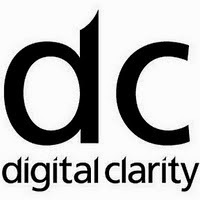Google Ads in their yellow boxes are
something of a ubiquitous presence online nowadays and there is no doubting the
value of a well thought out, successful pay per click management (PPC) campaign
to any online business. In short, PPC brings in traffic. Once set up it has a
proven track record in bringing users to your site within hours but this is
only a small piece of the jigsaw, how can you ensure that you are making the
most of your campaign?
There are several areas to cover; most
important of all, when it comes to being able to measure the success or
otherwise of a campaign, is tracking and analytics. It is vital that all
traffic and conversion actions (the user doing what you want them to do i.e.
make a purchase, sign up to a newsletter, or fill out an enquiry form) are
correctly tracked so that you can see exactly what your PPC management budget
is getting you.
This is achieved in two parts. 1.
Registering for Google Analytics, linking it to your website and telling it
what your goals are and 2. placing the Google Adwords conversion code on
webpages that generate a conversion, for example the 'thank you for your
purchase' page after a sale is completed. This gives Google the tools to tell
you how many of your target actions are taking place in any given time period
and, more importantly, what each one is costing you. By analysing this data you
can see if your advertising is profitable or if not, what areas you need to
improve.
It is also important to note that there are
PPC platforms available other than Google, such as Yahoo! Bing Network or small
PPC agencies.
Google dominates the PPC market, and therefore usually brings in much more
traffic, but other companies can have other advantages (for example, they may
be cheaper). Also, if your account has been suspended by Google or your niche
doesn't match their terms of service, you may have no other choice than to look
elsewhere.
When it comes to successful
PPC management, you must also ensure that you use the best possible
landing page for your adverts. For example if you are a shop that sells clothes
and you have a range of adverts for a specific jacket, you are far better off
having these ads directing the user to the specific product or category page
for the jacket, rather than the company homepage.
This is because Google analyses how
relevant your advert content is to the landing page you direct the user to, in
an effort to stop people manipulating the user experience with underhand
tactics. The rating it gives you affects what is known as AdRank – the overall
rating system that Google uses to determine what ads show at the top of each
page. Google rates the landing page experience in the keywords tab for each
campaign; anything below 'average' is hindering your advertising and could be
causing Google to charge your more per click than a competitor with a better
landing page rating. Always look to improve the relevance of your pages where
possible and also ensure that they are optimised for SEO correctly, in order
maximise your results.
Recently Google have launched and
encouraged the use of what it calls 'Ad Extensions'. These are extra layers of
detail that it believes offers the user a better experience and allows them to
make a more informed decision about which ads they do and do not click on.
These extensions include things like extra links under your text ad that go
directly to a specific page on your site. This is great for multi-layered
campaigns and also your company address and telephone number, ideal for local
business to target their local area.
When brought together, these strands form
the basis of cost effective, successful Google Advertising that brings in the
customers. Can your business afford to be without it?



0 comments:
Post a Comment